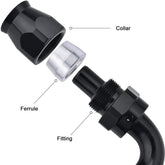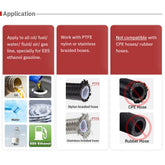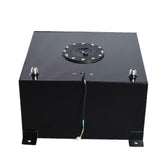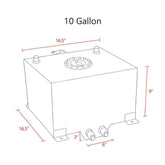Introduction to 6.7 Cummins Delete Kit
The 6.7 Cummins engine, renowned for its power and durability, is a favorite among truck enthusiasts. However, the factory-installed Exhaust Gas Recirculation (EGR) and Diesel Particulate Filter (DPF) systems can lead to performance issues and increased maintenance costs. This is where a delete kit comes into play, offering a solution to these problems.
Before we get into the benefits of installing a knockdown kit, let’s delve into the implications of EGR and DPF systems…
Understanding the Need for EGR and DPF Delete
Indeed, the Exhaust Gas Recirculation (EGR) and Diesel Particulate Filter (DPF) systems, while aimed at reducing emissions to meet environmental standards, can introduce a host of issues for vehicle owners, particularly those with the 6.7 Cummins engine. Let’s take a closer look at these issues and how they affect vehicle performance and maintenance.
What is the cause of EGR failure?
The EGR system is designed to recirculate a portion of the exhaust gases back into the engine's intake to reduce the formation of nitrogen oxides (NOx). However, the EGR system can introduce its own set of issues:
- Engine Overheating: The recirculation of hot exhaust gases can lead to increased engine temperatures, potentially causing overheating.
- Carbon Deposits: The EGR system can contribute to the formation of carbon deposits on the intake valves and ports, which can lead to poor engine performance and increased emissions.
- EGR Cooler Failure: The EGR cooler can fail, leading to coolant leaks into the exhaust system, which can cause white smoke from the tailpipe and potentially lead to engine damage.
What are the consequences of a clogged DPF system?
The DPF is designed to trap particulate matter from the exhaust gas, reducing the amount of soot and other pollutants released into the atmosphere. However, over time, the DPF can become saturated with soot. When this happens, the filter needs to undergo a process called regeneration to burn off the accumulated soot. If the DPF becomes excessively clogged, it can lead to several problems:
- Reduced Engine Performance: A clogged DPF restricts the flow of exhaust gases, which can lead to a decrease in engine power and performance.
- Increased Fuel Consumption: The restriction in exhaust flow can cause the engine to work harder, leading to increased fuel consumption.
- Check Engine Light: A clogged DPF can trigger the check engine light to illuminate, indicating a problem with the exhaust system.
- Potential Engine Damage: In severe cases, if the DPF becomes completely blocked, it can cause engine damage due to excessive back pressure.
Regeneration Process
The regeneration process is crucial for maintaining the DPF's efficiency. However, it can occur at inconvenient times and may not always be effective:
- Inconvenient Timing: The vehicle may initiate a regeneration cycle at an inconvenient time, such as during short trips or when low on fuel, which can be frustrating for drivers.
- Incomplete Regeneration: If the regeneration process is not completed successfully, due to interruptions or insufficient driving conditions, the DPF may not be fully cleaned, leading to a quicker return of performance issues.
- Fuel Consumption: The regeneration process typically requires additional fuel, further increasing the vehicle's fuel consumption.
The EGR and DPF systems, while necessary for meeting emissions standards, can introduce significant challenges for 6.7 Cummins engine owners. These issues can result in reduced performance, increased maintenance costs, and potential engine damage.
How to Avoid EGR and DPF Issues on 6.7 Cummins?
Installing the 6.7 Cummins Delete Kit can indeed help to eliminate or significantly reduce the issues associated with the EGR (Exhaust Gas Recirculation) and DPF (Diesel Particulate Filter) systems. These delete kits typically include components and features that address the common problems:
EGR Delete Kit: This removes the EGR system, including the EGR valve and cooler, and replaces them with block-off plates and other necessary hardware. This can prevent issues such as overheating, carbon buildup, and coolant leaks that are associated with the EGR system.
DPF Delete Kit: This removes the DPF and replaces it with a high-flow exhaust system. This can eliminate problems with DPF clogging and the regeneration process, improving fuel efficiency and restoring engine performance.
Tuner: Many delete kit include a tuner that can reprogram the Engine Control Unit (ECU) to optimize the engine's performance without the EGR and DPF systems. This helps to ensure that the engine runs smoothly after these emission control systems have been removed.
However, it's important to be aware of the potential consequences of using a delete kit:
Legality: In many regions, using delete kit may violate environmental regulations, so using them on public roads could result in legal penalties.
Warranty: Installing the delete kit may void your vehicle's warranty.
Emissions: Removing these emission control systems will increase the vehicle's emissions, having a negative impact on the environment.
Conclusion
Before considering the installation of the 6.7 Cummins Delete Kit, it's crucial to carefully weigh these factors and consider your specific needs and the legal requirements in your area.
If you primarily use your vehicle in off-road environments, or if the regulations in your area are less strict regarding these emission control systems, a delete kit may be an option for improving performance and reliability.









